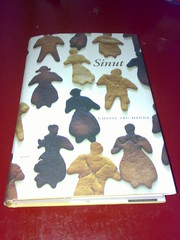A week ago I attended the 50th birthday party of a dear friend of mine in Helsinki. Many of the speakers emphasised how Helsinki is a European metropole - a true mix of cultures. All the speakers in that event were historians and therefore they looked things from a perspective of a century pointing out - rightly so - that in the beginning of the 1900s one could easily hear Finnish, Russian and Swedish on the streets of the city.
As living in Amsterdam in a neigbourhood with more than 50 % of the population with a non-European descent, Helsinki is still extremely homogenous. Helsinki is still far from being a city where white man would not be the default option. The level of multiculturalism can be explained by analysing the Finnish multiculturalism debate - in Finland the discussion dwells still around tolerance and anti-discrimination rather than inclusion, coexistence, joint rules and reciprocity.
When one looks at Helsinki and Finland on a scale of 20 years and from a personal perspective of a once migrant, the picture turns out to be somewhat different. My Finnish friend Umayya Abu-Hanna's new book Sinut is a moving and honest take on the way the small nation in the North deals with the world. Or in many cases, on the way that it doesn't.
Quote:
"I have never encountered that the taste of mämmi or sauna would cause problems. The basic problem is losing yourself, the attempt to recognise oneself in this individual who functions in Finland. Here I get back to the point that quantity matters. In big cities where one has lots of people who have arrived from different cultures and people who are outsiders even in those cultures, there is a greater probability at least at times to be heard as oneself. In a place like this also the majority culture has learned to interpret and see differing ways to be and live." (translation from Finnish by me)
In her book she goes through incidents of pure racism and xenophobia, often practised by highly educated people (like employers) and often without the people realising themselves the fu**ed up value structures they are communicating. She cleverly breaks and builds again the notion of identity. The book brought me into tears with its frankness for instance when Umayya writes about feeling scared in a Finnish hospital. What really made me love the book was the lively way she describes also incidents when she has fallen short or just given in but also when Finns have opened their hearts and homes for her.
Finland still has a long way to go in order to be sinut (Finnish word for being comfortable with yourself and the title of Umayya's book) with a mixture of cultures, habits and customs. We still simplify other cultures while demanding specificity when people deal with us.
Umayya's compassion and love for Finland is obvious throughout the book. I am confident that many readers will be irritated by her criticism. But by seeing her as one of us rather than as an outsider the criticism is only welcome - we all bitch every now and then about our loved ones but will get on barricades if we would hear the same things from outsiders. 20 years should be more than enough to claim one's experiences as Finnish. The best thing in Umayya's book, however, is the optimistic underlying tone - we are still far but we have travelled far in 20 years.
"When one has lived her entire adult life in this culture and feels being part of it, it is impossible to work if everything you do is seen from another angle. Every journalist feels that it is necessary and is expected that one is building the community with the observations, conclusions and stories. One criticises injustice. From my perspective my position is Finnish. Here is the biggest contradiction: when I see myself participating as myself in a discourse and building of my society, in the eyes of some I break an unwritten or maybe written rule which states that Finnishness is a clear definition which I do not fit in to."
Huumekauppa pitäisi ottaa valtion monopoliksi
13 hours ago













No comments:
Post a Comment